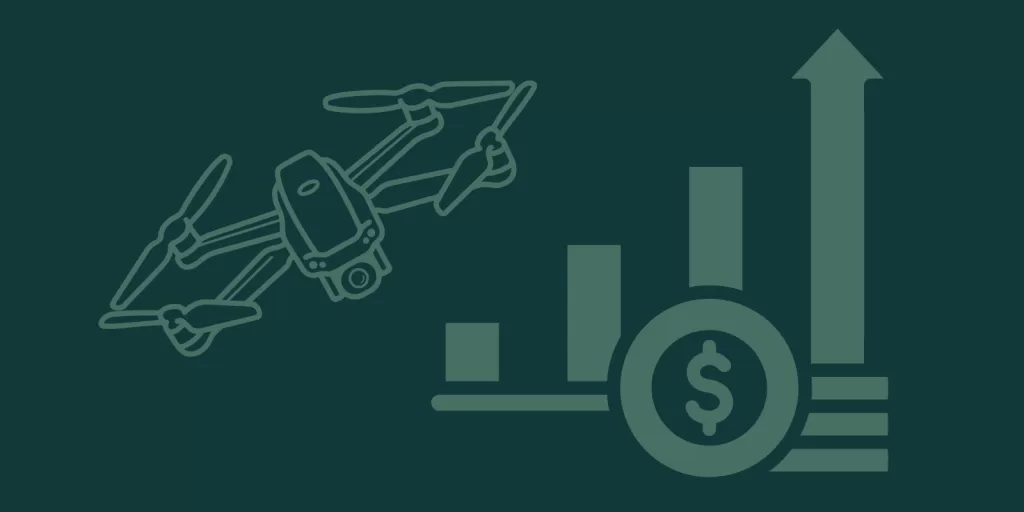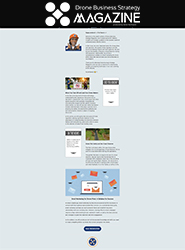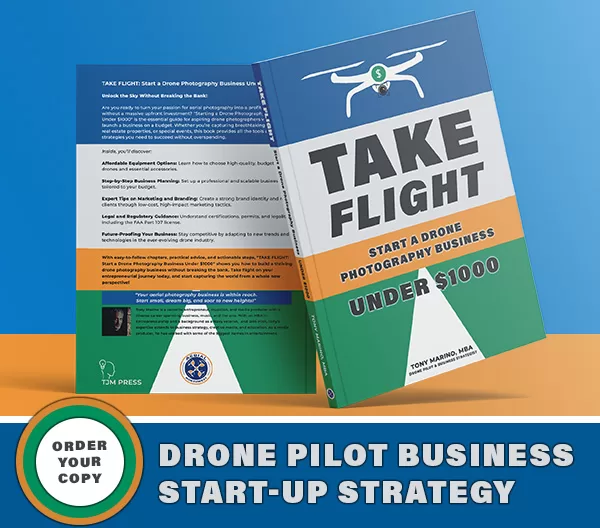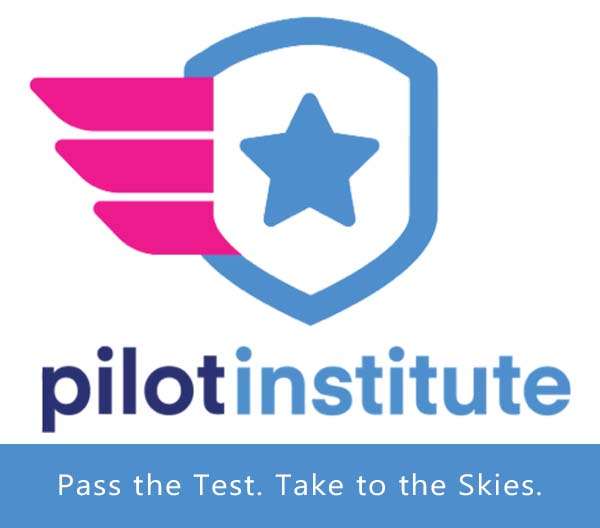
The drone industry has exploded in recent years, with advancements in technology, decreasing costs, and increasing demand for aerial photography, surveying, and other services. For entrepreneurs looking to capitalize on this trend, starting a drone business can be a lucrative opportunity. However, as with any business, understanding the profitability of a drone business and the factors that contribute to success is essential. In this detailed guide, we’ll explore the various aspects of the drone business, from initial investment and operational costs to market demand and growth potential, helping you determine if starting a drone business is worth it.
Understanding the Drone Industry and Market Demand
Rapid Growth of the Drone Market
The global drone industry is expected to continue its upward trajectory, with the market size predicted to surpass $40 billion by 2026. As drone technology improves, the range of industries utilizing drones expands, offering substantial opportunities for entrepreneurs. From real estate and construction to agriculture and entertainment, drones are revolutionizing how businesses operate, providing cost-effective solutions for tasks that were once time-consuming or unsafe.
Key Drone Services and Their Profit Potential
Aerial Photography and Videography
One of the most well-known applications for drones is in aerial photography and videography. Real estate agents, wedding planners, filmmakers, and event organizers are among the primary clients for these services. The growing demand for high-quality aerial shots and videos has created a thriving market for drone photographers.
Commercial Surveying and Mapping
Drones are increasingly used in industries such as construction, agriculture, and mining for surveying and mapping purposes. They provide accurate, real-time data, reducing the need for manual labor and improving efficiency. This service can be highly profitable due to the complexity and high demand for accurate aerial mapping.
Inspection and Monitoring Services
Drones are ideal for inspecting infrastructure such as power lines, bridges, and cell towers. By using drones, businesses can reduce the risk and cost associated with traditional inspection methods, making this service a valuable option in various industries.
Drone Delivery Services
Although still in its early stages, the drone delivery market is projected to grow rapidly. Companies like Amazon and UPS are already testing drone delivery systems, and there’s a significant opportunity for entrepreneurs to enter this emerging field.
Financial Considerations: Start-Up Costs and Profitability
Initial Investment and Drone Equipment Costs
Starting a drone business requires a significant initial investment. The cost of drone equipment can vary depending on the type of drones you need for your services. Entry-level drones suitable for photography can cost anywhere from $500 to $2,000, while more advanced drones for surveying or industrial applications can range from $5,000 to $50,000.
In addition to the drones themselves, you’ll need to invest in essential equipment like controllers, batteries, storage devices, and software for data processing and analysis. You may also need insurance to protect your equipment and cover liabilities, which can cost several hundred to a few thousand dollars annually.
Ongoing Operational Costs
While drones offer a relatively low-cost operating model compared to other industries, there are still ongoing expenses to consider. These include:
- Maintenance and Repairs: Drones require regular maintenance, and repairs can be costly if parts are damaged during operations.
- Software Subscriptions: Depending on the type of services you offer, you may need specialized software for mapping, video editing, or data analysis. These subscriptions can range from $100 to $500 per month.
- Licensing and Certifications: To legally operate drones commercially, you’ll need to obtain certifications and licenses from aviation authorities, such as the FAA in the United States. These certifications often require periodic renewals, adding to your operational costs.
Profit Margins and Return on Investment
The profitability of a drone business can vary depending on the services you offer and the demand in your market. Generally, drone services offer high profit margins due to the relatively low operational costs. For example, a drone photographer can charge $150 to $500 per hour for services, with very few ongoing costs beyond equipment maintenance and software subscriptions.
With a solid business plan and effective marketing, a drone business can achieve a return on investment (ROI) within 12 to 18 months. However, the ability to scale your business, expand your service offerings, and build a strong client base will determine long-term profitability.
Key Factors Influencing Drone Business Success
Market Demand and Niche Selection
The drone industry is diverse, with opportunities in various niches. One of the key factors in ensuring the success of your business is identifying a niche with strong demand and relatively low competition. For example, the agricultural industry is increasingly turning to drones for crop monitoring, while the real estate sector is looking for aerial photography services to market properties. By specializing in one or more of these niches, you can position your business as an expert in the field, attracting high-value clients.
Marketing Strategies and Client Acquisition
Effective marketing is crucial to growing your drone business. Building an online presence, networking with potential clients, and utilizing platforms like social media and Google Ads can help you attract customers. Additionally, offering promotional rates or free trials to clients can be a great way to build a portfolio and secure long-term contracts.
Legal and Regulatory Considerations
Operating a drone business requires adherence to strict legal and regulatory guidelines. In most countries, including the United States, you need to be licensed and certified to fly drones for commercial purposes. This often includes passing written exams, completing flight training, and maintaining specific safety standards.
Failure to comply with legal requirements can result in fines, penalties, or even the suspension of your business. Therefore, it’s critical to stay up to date on regulations, acquire the necessary licenses, and prioritize safety in your operations.
Long-Term Trends and Growth Potential
The Future of Drones in Various Industries
As drone technology continues to evolve, new applications and industries will emerge. Some of the most promising trends include:
- Artificial Intelligence and Automation: Drones equipped with AI can analyze data and perform tasks without human intervention. This will improve efficiency and expand the range of services that drones can offer.
- Drone Swarms and Coordinated Flights: The use of multiple drones working together in unison will become more common in industries like agriculture, construction, and logistics, opening up additional revenue streams.
- Environmental and Conservation Efforts: Drones are increasingly used in environmental monitoring and conservation efforts, such as wildlife tracking, forest management, and disaster response.
Scaling Your Drone Business for Long-Term Success
Scaling your drone business involves expanding your service offerings, increasing your fleet of drones, and possibly hiring additional pilots. By diversifying into high-demand industries like surveying, inspection, and delivery, you can significantly increase revenue potential and ensure the long-term sustainability of your business.
The Takeaway
Starting a drone business can be highly profitable, provided you make informed decisions regarding your niche, services, and investments. The demand for drone services continues to grow across various industries, and with the right strategies in place, you can achieve a high ROI. While initial costs and regulatory requirements can be a barrier to entry, the potential rewards make the drone industry an attractive opportunity for entrepreneurs.
By focusing on market demand, building a solid client base, and staying ahead of industry trends, you can establish a successful and sustainable drone business that stands out in an increasingly competitive market.
If you have any questions, let us know! If you’d like to hire us, you can get more information here.
Written by: Tony Marino, MBA – FAA Certified Part 107 Commercial Drone Pilot and Chief Business Strategist at Aerial Northwest
Disclaimer: The information provided in this blog post is for general informational purposes only and should not be construed as legal advice.
Resources
- FAA Resources: FAA DroneZone
- Article: Drone Pilot Aerial Photography Business Plan Blueprint 2024
- Article: Top 5 Drone Pilot Marketing Channels for 2024
- Global Drone Market Outlook – Allied Market Research
- Drone Industry Analysis – Business Insider
- DroneDeploy: Professional Drone Mapping and Insights
- PwC Report: The Impact of Drones on Business
- Statista: Drone Industry Market Overview
- National Association of Realtors: Drones in Real Estate
- DJI: Drone Technology for Professionals
Starting Your Own Drone Service Business
Pick up your copy today on Amazon and wherever fine books are sold.

DRONE BUSINESS STRATEGY MAGAZINE
A free digital publication made exclusively for all small business drone pilots to them help start-up, become profitable while sustaining a competitive advantage within the drone service industry sector they opt to serve.
“If you love to fly, we’d love to have you come aboard!”
We share your information with no one. Our Privacy Policy.










Leave a Reply
Your email is always safe with us.